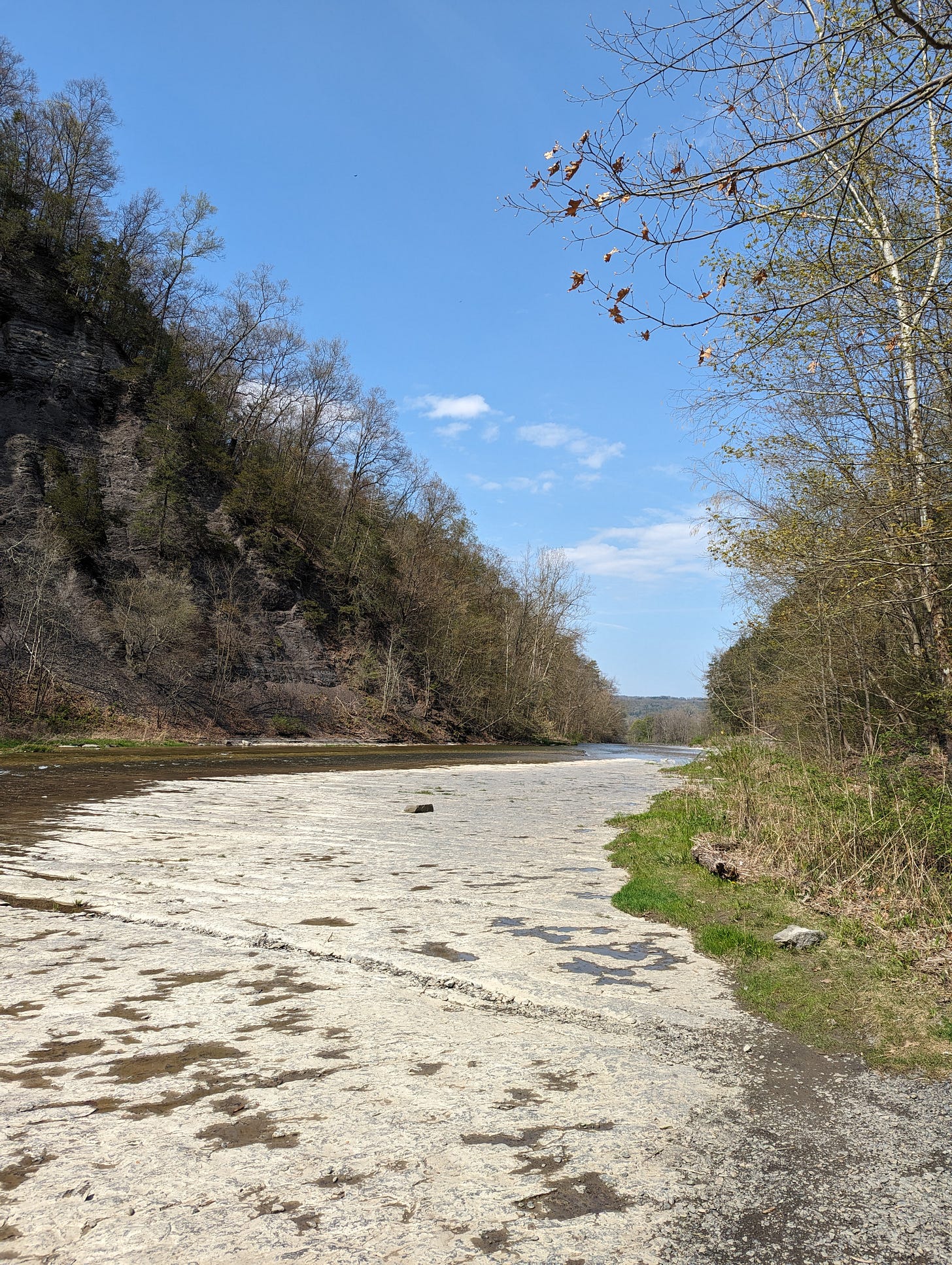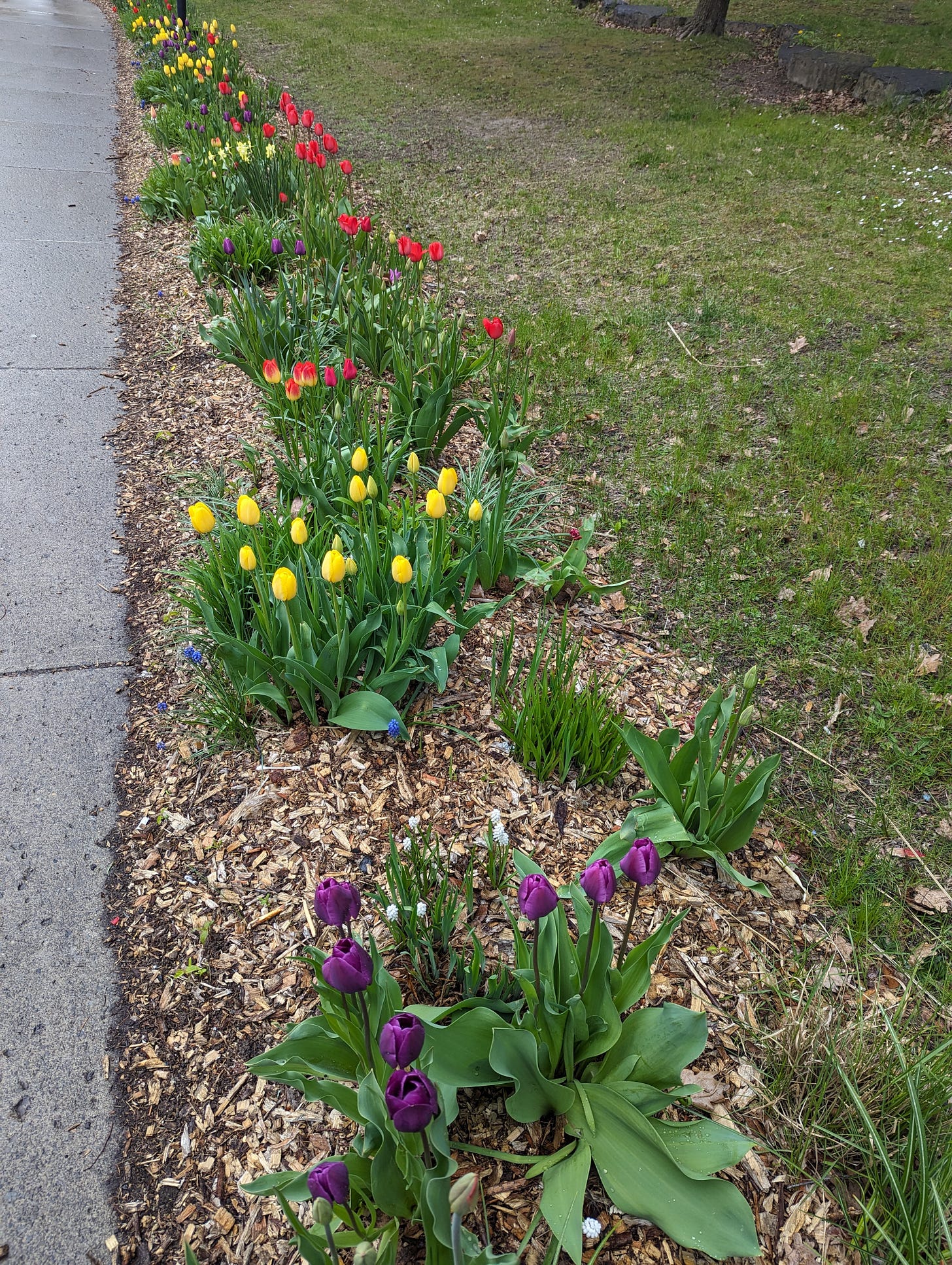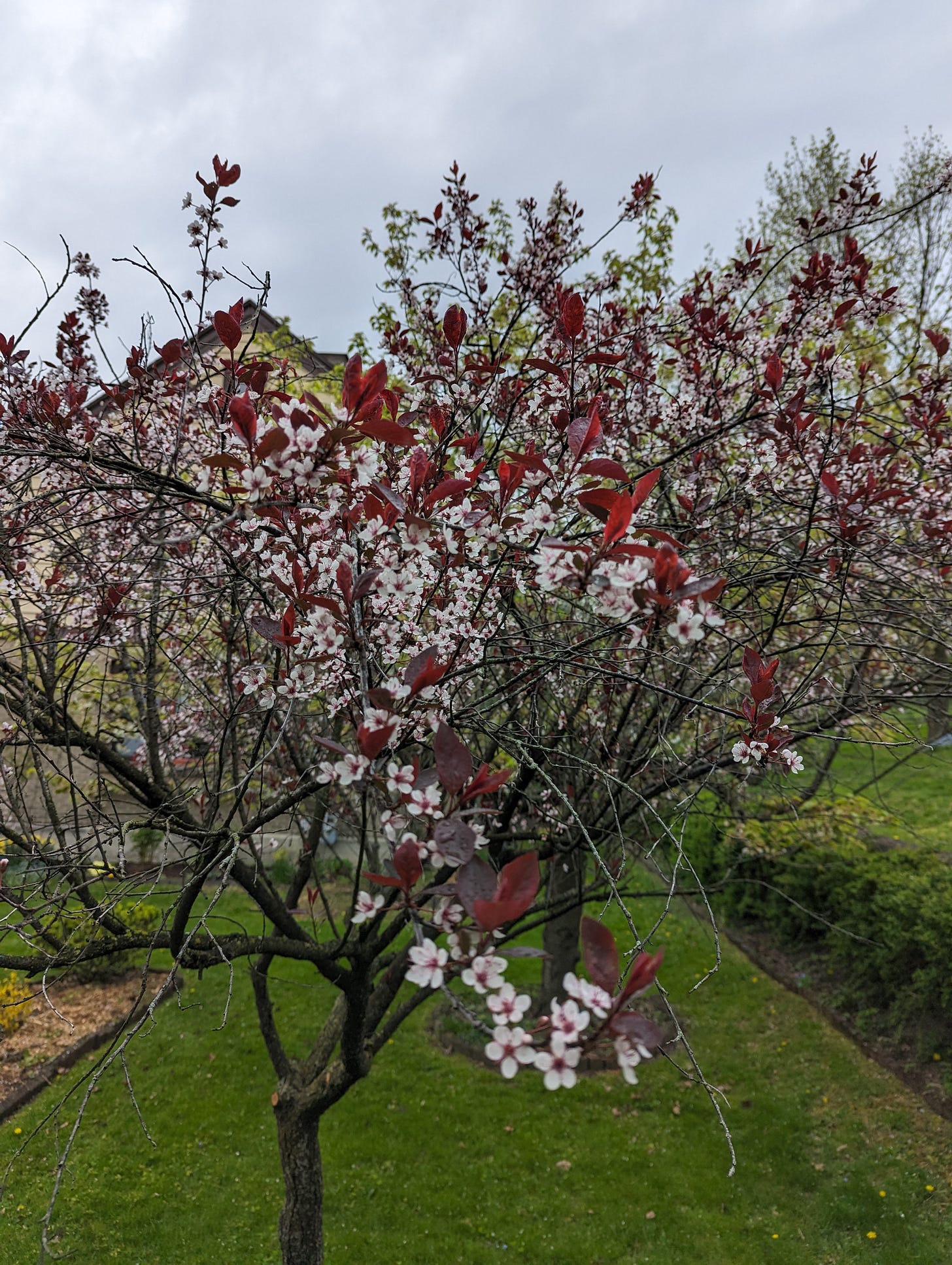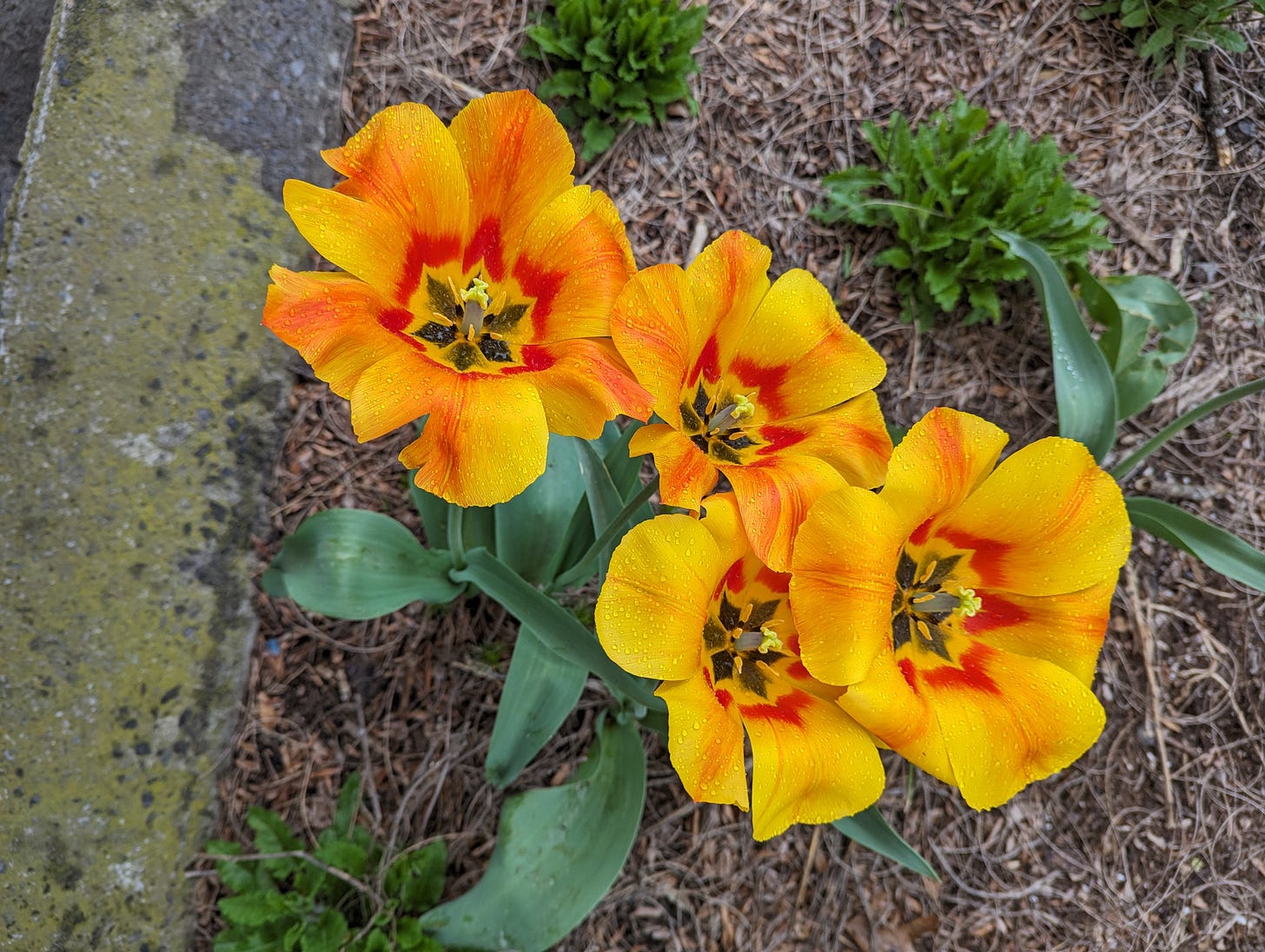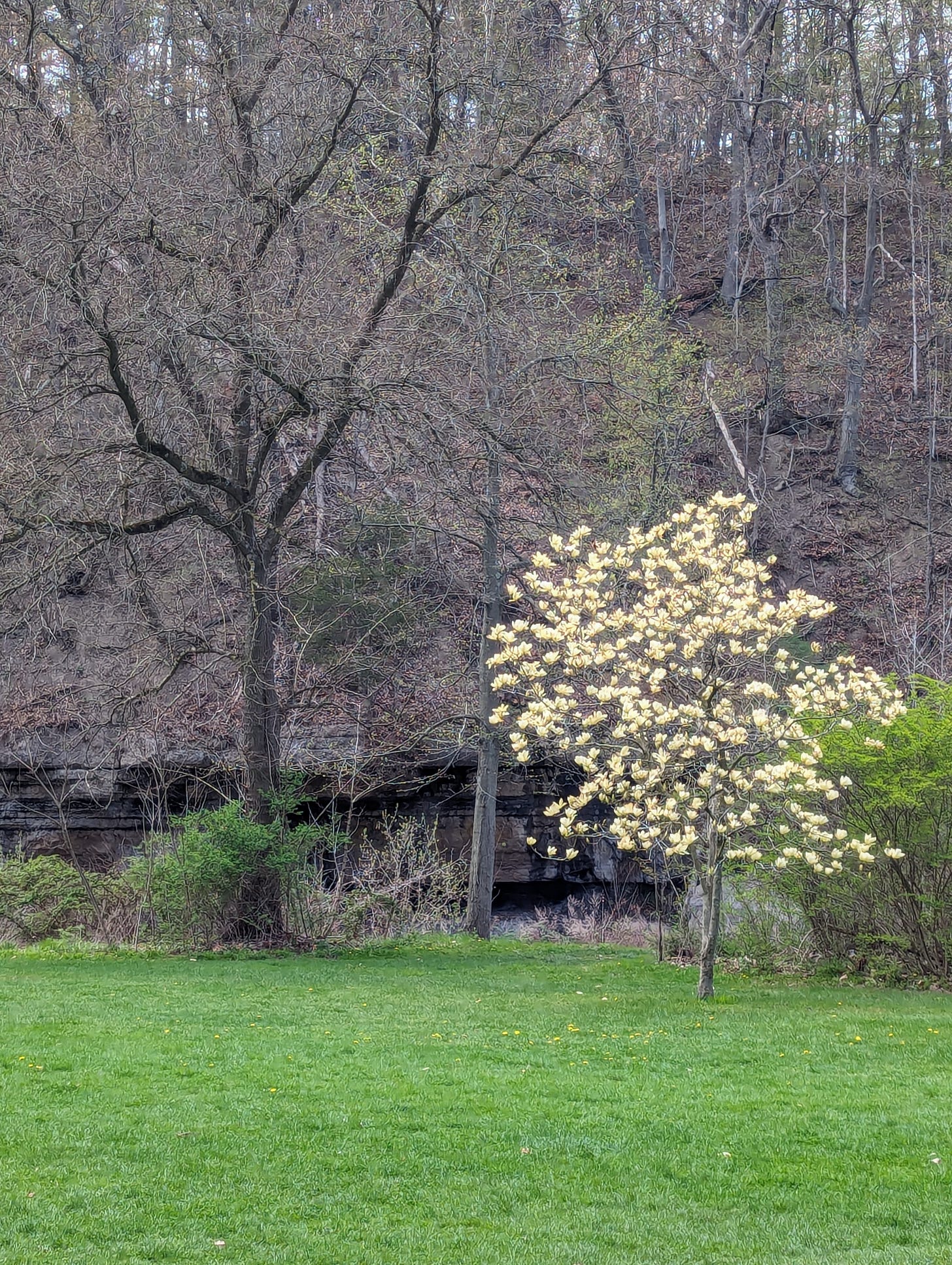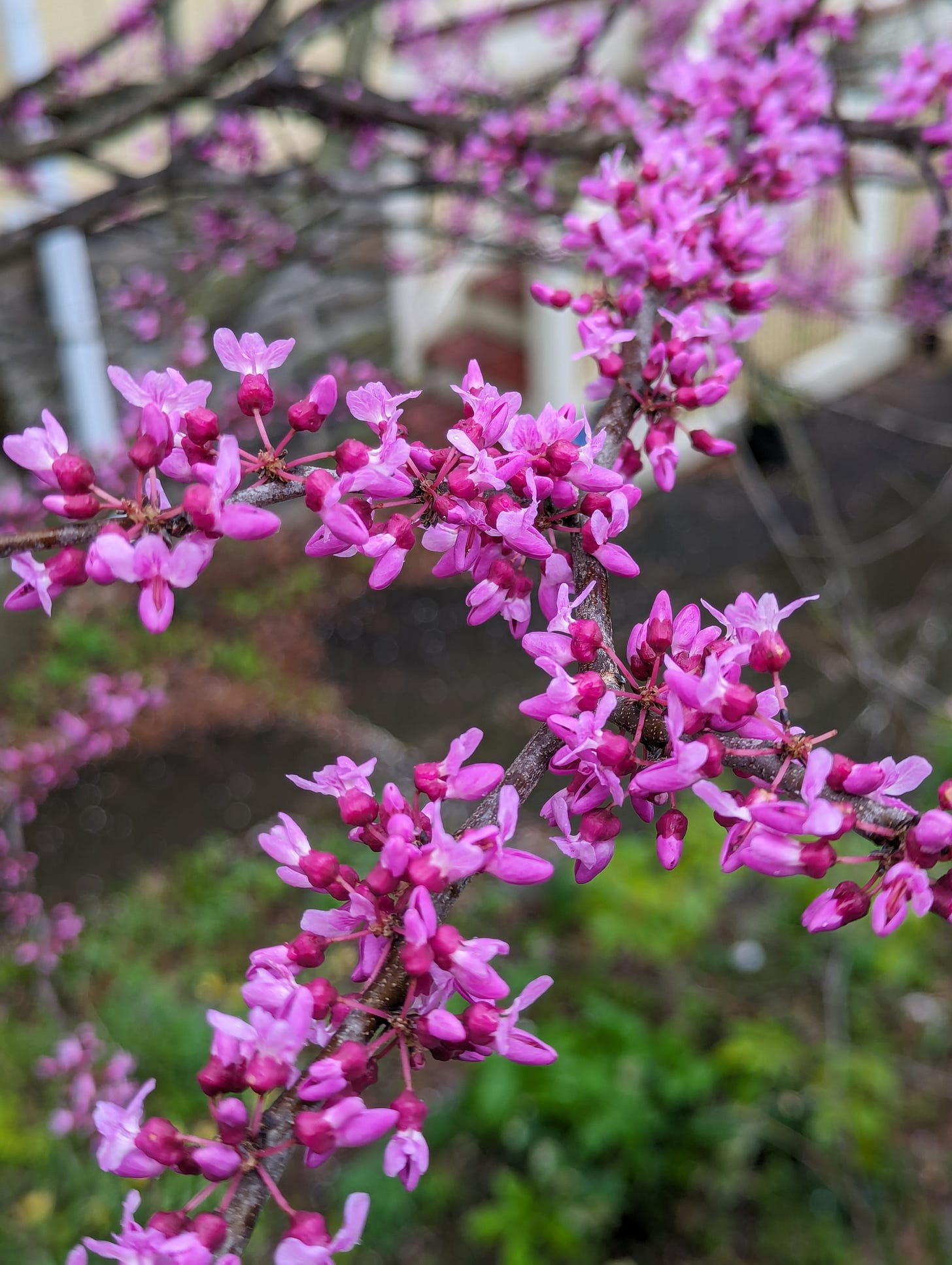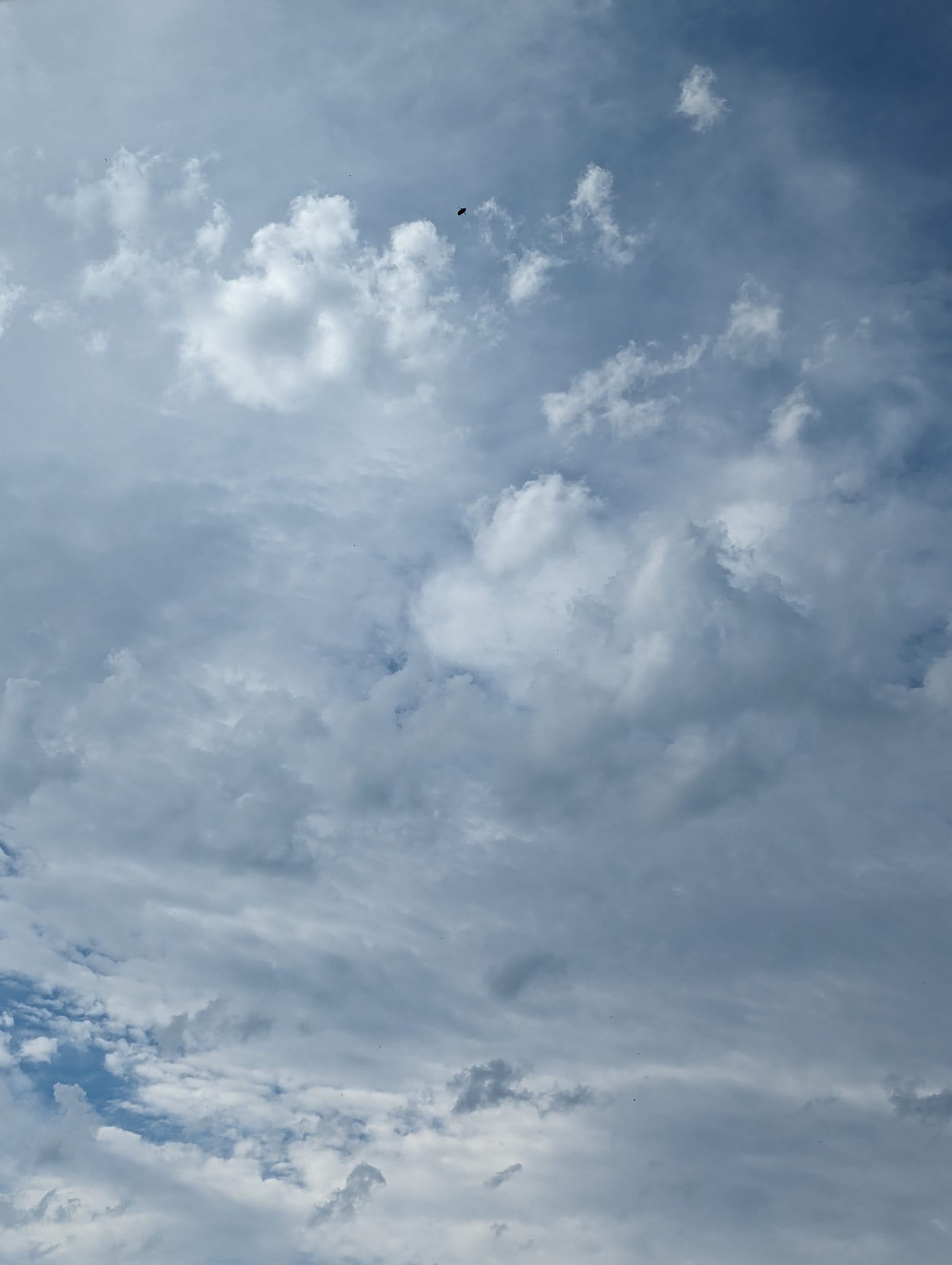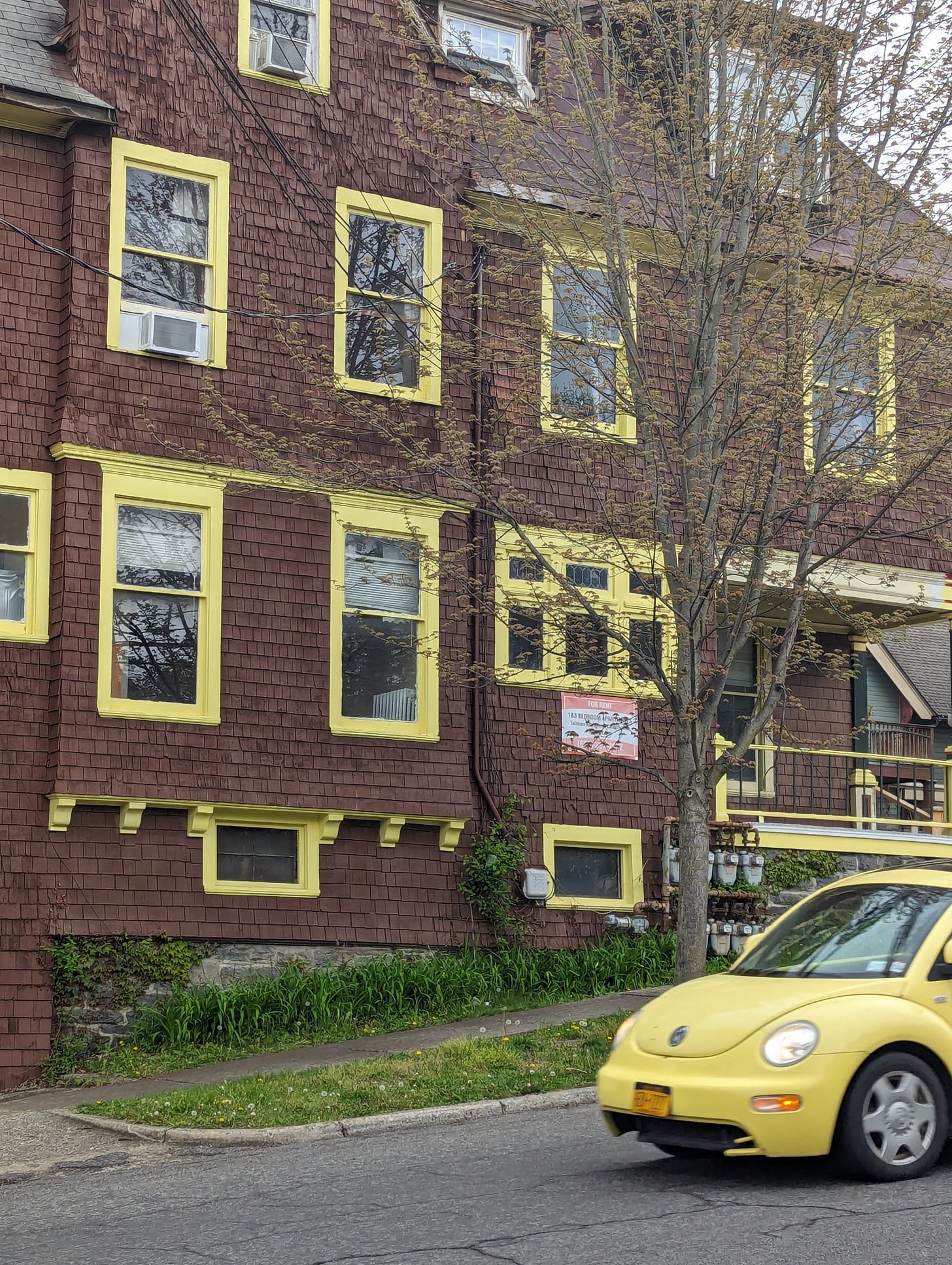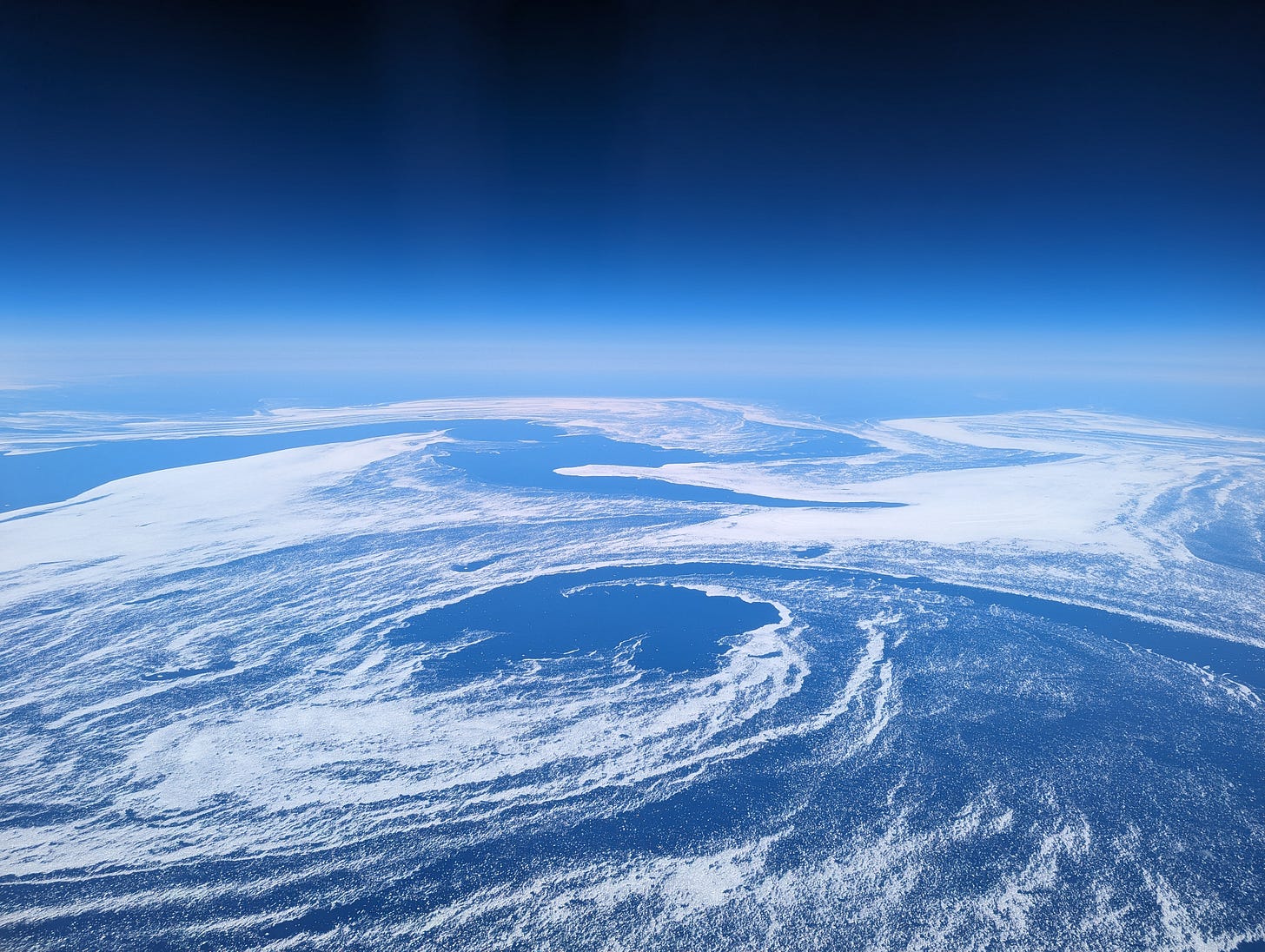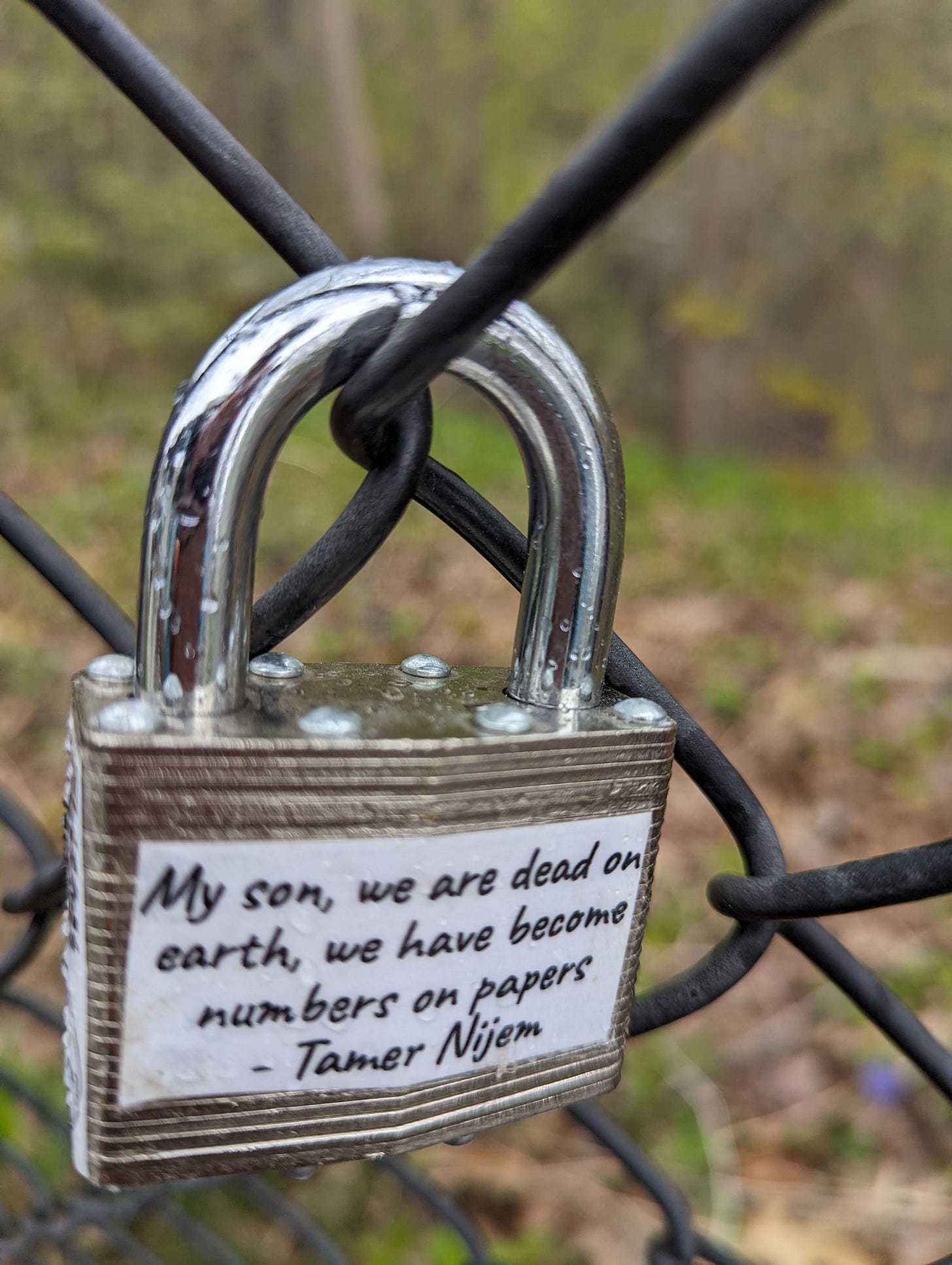Smells and Serendipity: Spring is in the air...
and in the eye and the nose and in the mud on your shoes.
You can take the girl out of the city, but you can’t take the city out of the girl. You can, however, make her take a walk on a thousands of years old river bed until the mud gets on her shoes and she is forced to admit that yes—this is a lot more fun than walking on concrete.
Pictures don’t do justice at all to the way spring blossoms in upstate New York, which is one of the many places I call home. Some city councilperson has decided they’re in love with tulips, so flowers are in bloom everywhere I walk, making me wonder, why doesn’t every city line their pavements with tulips? (Incidentally, these are on top of a gas pipeline, a fact that will be relevant later in this post).
I come to Ithaca in the spring when I need renewal. I came here in 2016 when I was burned out at work and despairing of ever making a change for women in the workplace. It was here that I wrote The Divine Comedy of the Tech Sisterhood, over a feverish 2 weeks, converting all that pain and rage into creativity.
Now, eight years later, I got to sit next to the Dean of Diversity, Equity and Inclusion and discuss the systemic implications of headcount-based hiring, budget-based hiring and location strategies. To listen to faculty discussing cutting-edge research on algorithmic bias in Generative AI.
And to look at flowers. Equally important, in the grand scheme of things. How would we be able to go on, given the state of the world, unless we found within ourselves a boundless capacity to notice what beauty exists? To marvel simultaneously at waterfalls from the 380-million-year-old Devonian era and at the plaque at the entrance noting when white settlers wiped out indigenous tribes there?
Flowers matter. Here are a bunch of them.
I am writing as fast as I can, and yet I fear I’m not fast enough. What I absorb, from the world, from work, from others, it must work its way through the magical and mysterious processes of the subconscious, the subterranean, until I too can produce something beautiful out of the nutrients in the soil, like a flower above a gas pipeline.
As a city girl, I forget easily the power of the natural world to work through us, if we let it. All it requires is openness—the hardest of all things. It’s easy to shut down into a defensive crouch in the face of change, easy to lose ourselves in abstract contemplation so we don’t notice the serendipitous moments that change us, like a lone bee valiantly climbing up into the clouds:
Or the moment a car drives past a house that matches its colors:
Or the icebergs near Nova Scotia we’d have slept through if the flight attendant on Jetblue hadn’t apologetically woken us up and demanded we look out the window.
Moments that can allow us to hope that when we die we become more than numbers on papers, that we may leave behind beauty in its various forms, in lines of poetry or in simply allowing ourselves to become whatever comes next, whether the fossils in the shale or the food for roadside flowers.



